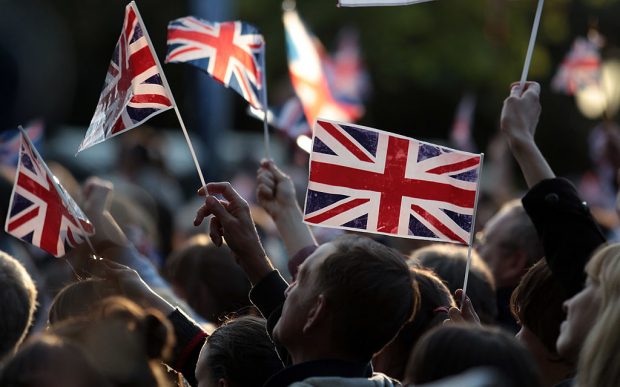 The stench of elite hatred for democracy is sifting through the streets of London.
The stench of elite hatred for democracy is sifting through the streets of London.
The courts have ruled against the Government’s ability to implement the clear democratic will of the people. Meanwhile, Remainers disparage those who voted for Brexit as uneducated and uninformed, tricked by a campaign of deceit, and voting against their supposed best interest. They show an absolute inability to accept that maybe, just maybe, the majority is not on their side.
Of course, this is nothing new. The idea that the masses are incapable of governing themselves, and must be led by the enlightened few, is one of the oldest diseases. Plato rejected Athenian democracy, preferring the idealised rule of ‘philosopher kings’ (i.e. himself). Similar arguments about people being “creatures of impulse and emotion” who lack reason were used against women’s suffrage.
Democracy had no lower ebb in the twentieth century than May 1940. Britain’s last major ally on the continent, France, had fallen. The chances of a successful evacuation of Dunkirk appeared weak. Nazism, in collaboration with Russian communism, was now dominating the continent. Meanwhile, much of Asia was falling to Imperial Japan. America seemed uninterested in helping.
It was left to Britain to defend western civilisation against the onslaught of some of the most extraordinary hatred. However, even at this time, there were many elites in Britain who, uninterested in democracy, were sympathetic to compromise. Despite the victory for democracy, it seems the anti-democratic strain of thought remains strong. It comes out in full flight when a decision is made contrary to their worldview.
Brexit is one part of it. However, we are more generally seeing a loss of faith in democratic systems. Surveys across western democracies have found young people are less supportive of democracy than their parents. Meanwhile, Donald Trump has consistently refused to say whether he would accept an election result against him.
The problem has become self-perpetuating. The people, sick of a feeling that elites are not listening to them, are increasingly choosing previously fringe parties and politicians on all sides of the spectrum. This leads the establishment to decry the impact of populism and seek to minimise democratic will – by, for example, attempting to block Brexit.
As former Australian prime minister John Howard reminded a British audience this week – ‘populism’ has always been with us. It is the role of politicians is to lead, to persuade the people. They must then respect their collective wisdom. No, not every person is right. Nor will everyone make the right decisions for the correct reasons. But they capability of humanity to choose its own leadership is fundamental to our humanity.
As Chris Berg explains, democracy reflects the fundamental principle that “all people have exactly the same right to participate in the construction of a political community”. It is a fundamental element of our liberty and equal moral worth. This is not to say that there should not be constraints on democracy – constitutions, rights and norms of accountability and responsibility. However, ultimately these institutions must be created with a sense of popular support or otherwise they will crumble at the first sign of strain.
Brexit is very difficult for the many whose entire world view it challenges. However, this is not a reason to make apocalyptic predictions of a new European dark age, nor is it a reason to block the people’s will. Remainers should focus on making a success of Brexit – representing the 48 percent who voted “In” by encouraging cooperation and mutual agreements in their priority areas.
The decision by the courts to block the triggering of Article 50, as well as other attempts to stop or delay Brexit in Parliament, will only do more damage to our democratic foundations. It expands the ‘elites versus the people’ dichotomy that is endangering the rising of extremists. If the appeal fails, the British parliament must swiftly respect the people’s will and allow the Government to trigger Article 50. The future of democracy depends on it.
Matthew Lesh is a Research Fellow at the Institute of Public Affairs. He is currently studying in London and can be followed on Twitter at @matthewlesh.
Got something to add? Join the discussion and comment below.
Get 10 issues for just $10
Subscribe to The Spectator Australia today for the next 10 magazine issues, plus full online access, for just $10.

























Comments
Don't miss out
Join the conversation with other Spectator Australia readers. Subscribe to leave a comment.
SUBSCRIBEAlready a subscriber? Log in